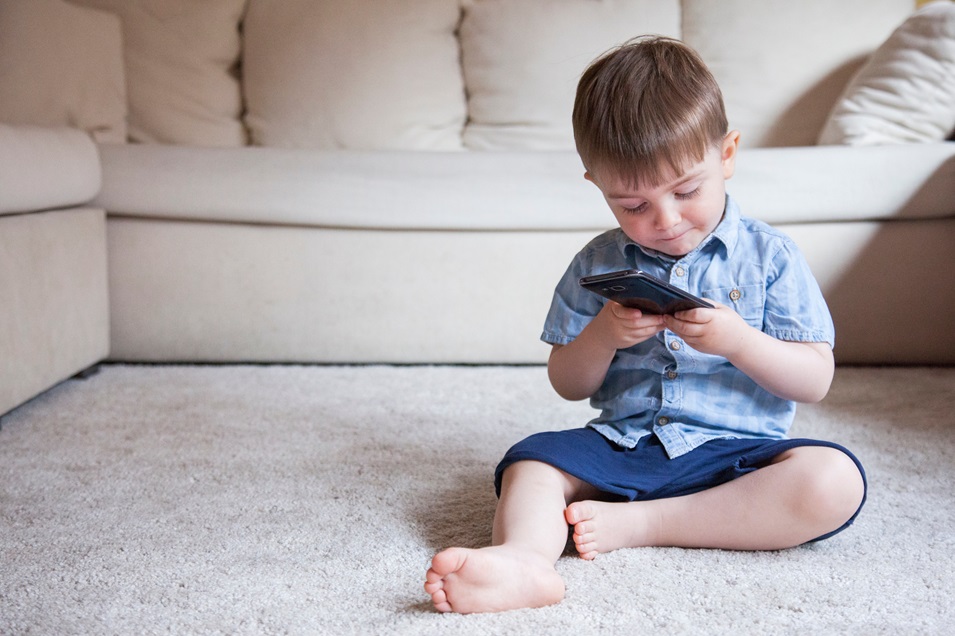Three Ways to Break Your Toddler’s Screen Addiction
Smartphones and electronic tablets for toddlers are everywhere! Today’s mothers allow their kids to watch videos and play games on them. After all, matching shapes and learning colors should be good, even on a screen, right?
Though your baby can memorize what they watch on a screen, screen-based memorization is not the best way for young children to learn. They require a multisensory learning approach incorporating touch, taste, smell, movement, and vision for maximum brain and body development.
For example, your toddler can learn the colors in other ways. While playing in the yard, say, “This flower is red” or “I see a blue sky; what do you see?” While looking at a picture book, you could say, “The grass is green, and the ball is red.” Learning colors in this way offers natural (not screen-based) ways of learning colors.
Screens are easy and do not require parental involvement. That absence of social connection and communication from a parent is the real danger with screens. Your toddler needs some adult interaction to learn best. Many moms are busy and choose screens to keep youngsters quiet. However, sitting for long periods staring at a screen can harm a toddler's brain development. Click To Tweet
Screen Addiction is Real, and It Is Dangerous
Many of today’s parents grew up with phones and digitized content and are not as worried as they should be about their babies being addicted to screen-based experiences. Research, however, shows that many of those same parents are significantly more anxious and stressed out than previous generations who did not grow up with ever-present digital devices. Research also reveals that many of today’s toddlers and young children struggle to sit and focus when they begin kindergarten. Teachers report delays in reading endurance and interest in book-based content. All kids want is to be “on the computer.”
Why are we experiencing massive increases in anxiety and poor attention? One factor may be that screens train our brains to have short attention spans and create a constant state of fear we will miss out on something. Incessant notifications activate our body’s fight-or-flight reactions, causing constant alertness, which leads to anxiety.
By allowing our toddlers to get used to screen-based interactions over real-world ones, we are setting them up for anxiety and poor attention when school begins.
Stop Using Screens as Your Digital Babysitter
The data is clear: Screens are unhealthy and not the best way for young children to build rich brain connections or to learn to focus on challenging activities, such as writing or reading.
The only decision for parents to make is whether or not to follow the research-backed recommendations on screen use.
If you decide to make healthier choices for your youngster, here are three ways to break the screen addiction:
- Provide lots of outdoor playtime filled with movement and sensory-rich experiences, including playing in water, sand, mud, bubbles, etc. Please put it on your calendar and make it a daily routine. Doing so will help your child develop a love of interacting with the natural world, which experts know builds healthy bodies and brains.
- Keep books, favorite small toys, crayons, and other non-digital items in your go-bag. Pull out those toys while in the car or running errands. Resist your child’s pleading for the device by being prepared to say no and mean it.
- Be the mom. I meet many young mothers who are hesitant to be in charge. They ask their youngsters questions instead of telling them what comes next. If you ask your toddler, “Do you want to turn off the video and read?” expect the answer to be “no.” So, take charge and use a firm tone of voice (some call it a teacher’s voice). For example, when it is time to go outside, say, “It’s time to go outside and play in the sandbox” or “Time to turn off the television and color at the table.” Don’t ask, tell.
All children, including toddlers, need structure and boundaries. Adults must establish and enforce these by creating healthy daily routines. The more predictable the routine, the calmer the child will be because they learn what comes next. Yes, they will occasionally resist; however, keep the routine as much as possible.
It Gets Harder From Here
Experienced moms know that older children can be more challenging to parent than toddlers. The longer you wait to take charge of the daily routine and stop using screens as a babysitter, the harder it will be to break this addictive behavior.
Remember, parenting is not supposed to be easy or something one can hand off to a digital device. Staying interactive and engaged emotionally with your child is an essential part of the job. For the parent who chooses to ditch the screens and embrace non-digital days, their child is on track for success in school and life.
Get your Milestone Tracker here.
(Photo: Adobe Stock)
Disclaimer: All information presented is general education and is not intended as specific prescriptions for your child. If you have concerns about any aspect of your baby’s development, talk with your doctor. If your child receives any intervention or therapy, this information is not intended to be used without their knowledge.

